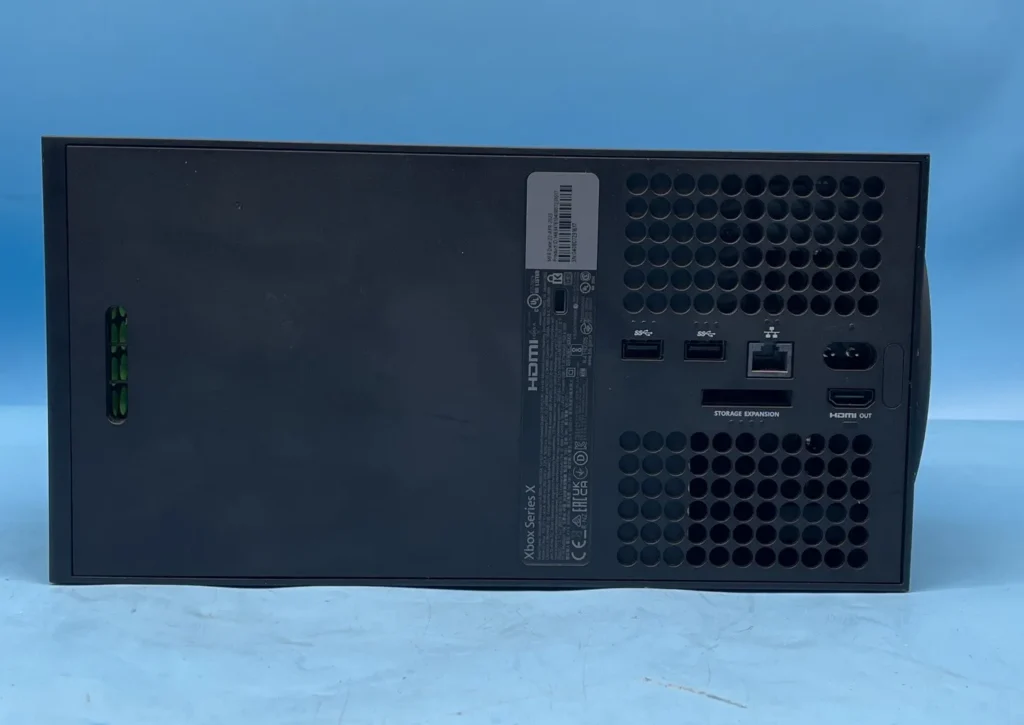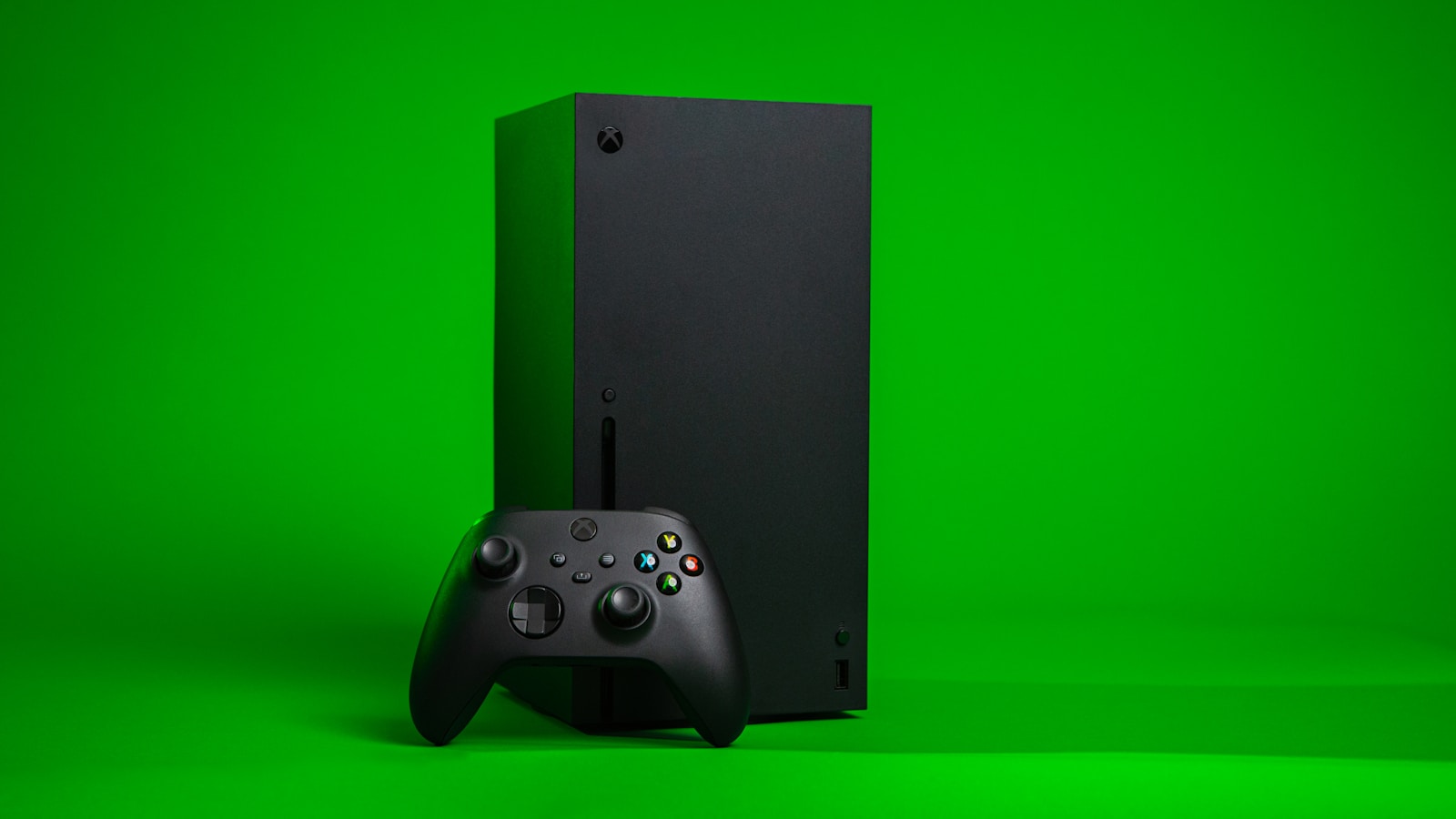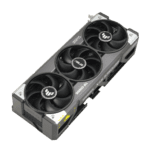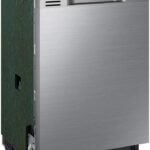The Xbox Series X, Microsoft’s flagship gaming console, continues to evolve its storage capabilities as we move through 2025. With games growing larger each year, storage has become a crucial factor for serious gamers who want to maintain a substantial digital library. The Xbox Series X comes equipped with a 1TB SSD, but only about 802GB is actually available for game storage, making external storage solutions increasingly valuable for many users.
Recent rumors suggest Microsoft may soon increase the external storage limitations for Xbox Series X/S consoles. Currently in testing with Xbox Insider program members, this update could potentially allow for external drives larger than 16TB to be supported. This would be a significant upgrade for players who need massive amounts of storage for their growing game collections.
For those seeking solutions today, several options exist, from the officially licensed Seagate Storage Expansion Cards that maintain the same performance as the internal SSD to more affordable external hard drives available in capacities up to 5TB. These varying options allow gamers to balance performance needs with budget considerations when expanding their Xbox storage.

Xbox Series X Storage Guide
The Xbox Series X is a powerhouse console with a 1TB custom NVMe SSD. While that sounds like plenty, modern games can easily exceed 100GB each, meaning storage fills up quickly. Luckily, Microsoft provides multiple ways to expand your storage while keeping performance intact.
🔹 Internal Storage (Built-In SSD)
- Capacity: 1TB (with ~802GB usable after system files).
- Speed: Custom NVMe SSD with Xbox Velocity Architecture.
- Function: Required for playing Xbox Series X|S Optimized games at full speed.
🔹 Official Expansion Cards
Microsoft partnered with Seagate and now Western Digital to make proprietary Storage Expansion Cards.
- Sizes Available (2025):
- 512GB
- 1TB
- 2TB
- How They Work:
Plug into the expansion slot on the back of the Xbox Series X. They act exactly like the internal SSD — same speed, same performance. - Best For:
- Playing Series X|S games directly.
- Seamless plug-and-play storage.
(Source: Xbox News)
🔹 External USB Drives
You can also connect external USB 3.1+ hard drives or SSDs.
- Use Cases:
- Store and play Xbox One, Xbox 360, and Original Xbox games.
- Store (but not play) Series X|S games — you’ll need to transfer them back to the internal SSD or expansion card to play.
- Pros:
- Much cheaper per GB than expansion cards.
- Great for a large library of older-gen titles.
- Cons:
- Can’t run next-gen optimized games directly.
(Source: PCMag)
🔹 Cloud Gaming Option
If you subscribe to Xbox Game Pass Ultimate, you can use Xbox Cloud Gaming (xCloud) to stream games without installing them locally.
- Pros: No storage required.
- Cons: Requires fast, stable internet.
⚖️ Which Option Should You Choose?
- Casual Players: Stick with the 1TB internal SSD + an external HDD for older games.
- Heavy Gamers: Get a 1TB or 2TB expansion card for next-gen titles.
- Budget-Friendly: Use an external SSD for storage, move Series X|S games back and forth as needed.
✅ Pro Tip: Keep your most-played Series X|S games on the internal SSD or expansion card, and archive the rest on an external USB drive.
Key Takeaways
- Xbox Series X offers 802GB of usable storage from its 1TB SSD, making external storage essential for players with large game libraries.
- Microsoft is testing support for external drives larger than 16TB, potentially addressing storage limitations for the most dedicated gamers.
- Multiple storage expansion options exist at different price points, from high-performance official expansion cards to more affordable external hard drives.
Understanding Xbox Series X/S Storage Capabilities
Storage options for Xbox Series X and Series S consoles offer different capacities and speeds that affect gaming performance. The right storage solution depends on how you plan to use your console and which games you play most often.
Internal Storage Specs
The Xbox Series X comes with a 1TB NVMe SSD (Solid State Drive), providing approximately 802GB of usable storage after system files. This high-speed storage enables features like Quick Resume and significantly reduces load times compared to previous generation consoles.
The Xbox Series S offers a smaller 512GB NVMe SSD, with even less usable space for games and apps. This more compact storage reflects the console’s focus on digital games rather than physical discs.
Both consoles use custom SSD technology that dramatically outperforms traditional hard drives. Games optimized for Xbox Series X/S require installation on either the internal SSD or an official expansion card to take full advantage of next-gen features.
Proprietary Storage Expansion Options
Microsoft partnered with Seagate to create proprietary Storage Expansion Cards specifically designed for Xbox Series X/S. These cards plug directly into a dedicated port on the back of the console.
The main advantages of these expansion cards include:
- Perfect compatibility with Xbox Velocity Architecture
- Identical performance to the internal SSD
- Hot-swappable design (no need to restart when changing cards)
- Various capacity options (1TB, 2TB, and 512GB)
These cards seamlessly integrate with the system, appearing as additional internal storage. Games can be installed, moved, or played directly from these expansion cards with no performance penalty.
While convenient, the proprietary design makes these cards more expensive than standard external storage options.
Compatibility with External Hard Drives and SSDs
For more affordable storage expansion, Xbox Series X/S supports standard USB 3.1 external hard drives and SSDs. These connect through the USB ports on the console.
External drives offer these capabilities:
- Store and play Xbox One, Xbox 360, and original Xbox games
- Store (but not play) Xbox Series X/S optimized games
- Transfer games between storage devices to avoid redownloading
The key limitation is that games optimized for Xbox Series X/S cannot be played directly from standard external drives. They must be transferred to either the internal SSD or an official expansion card before playing.
External SSDs provide faster transfer speeds than traditional hard drives, making them a good middle-ground option for those with large game libraries who don’t mind occasionally moving games between storage devices.
Enhancements and Innovations
The Xbox Series X has seen significant storage improvements since its launch, with new technologies and options becoming available for players struggling with limited space. These advancements focus on speed, capacity, and ease of use.
Xbox Velocity Architecture and Load Times
Xbox Velocity Architecture represents one of Microsoft’s most significant technical achievements for the Series X. This custom-built system combines hardware and software to dramatically reduce load times while enabling larger, more detailed game worlds. Games optimized for Series X can load in seconds rather than minutes.
The architecture works by creating custom hardware decompression blocks inside the console that allow games to efficiently stream assets directly from storage. This design gives developers new freedom to create expansive environments without traditional loading screens.
Testing shows games like Forza Horizon 5 and Halo Infinite load up to 4-5 times faster than their Xbox One versions. The system also powers Quick Resume, letting players switch between multiple games instantly without losing progress.
Storage Expansion Card Special Editions
Microsoft and Seagate have expanded their partnership with special edition Storage Expansion Cards. The standout offering is the 2TB Galaxy Black Special Edition, which provides double the storage of the original card with a sleek dark finish that complements the Xbox Series X console.
These cards maintain the same plug-and-play functionality as the original, sliding into the dedicated expansion port on the back of the console. Unlike external hard drives, these cards support all Xbox Velocity Architecture features.
Price points have become more competitive, with sales frequently bringing costs down 15-20% below original MSRPs. Limited edition cards featuring game-specific designs for titles like Starfield and Call of Duty have also appeared.
Special Edition Cards Available:
• 2TB Galaxy Black
• 1TB Starfield Edition
• 1TB Call of Duty Edition
• 512GB Forza Motorsport Edition
Future Storage Updates and Community Testing
Microsoft’s Xbox Update Preview program continues to test storage improvements through its Alpha Skip-Ahead Ring. Recent updates focus on optimization algorithms that can reduce the installation size of certain games by 10-15% without impacting performance or visual quality.
One promising feature being tested allows players to temporarily archive Series X games without deleting saves or configurations. This “cold storage” approach keeps games on the drive but compressed until needed again, providing more efficient space management.
The community testing program has also explored methods to better integrate external USB drives. While these drives still can’t run Series X optimized games directly, the system might soon make transferring between external and internal storage faster and more automated.
Recent dashboard updates have improved file management tools, allowing more granular control over what content gets installed with each game.
Frequently Asked Questions
Storage options for the Xbox Series X can be confusing with various expansion possibilities. These common questions address the most important aspects of Xbox Series X storage solutions that gamers need to understand.
What are the options for expanding the Xbox Series X storage capacity?
Xbox Series X owners have several storage expansion options. The official Seagate Storage Expansion Card is available in 512GB, 1TB, and 2TB sizes.
These cards plug directly into the dedicated expansion slot on the back of the console. They offer the same performance as the internal SSD.
Standard external USB hard drives can also be used, but with limitations. They work well for storing and playing Xbox One, Xbox 360, and original Xbox games.
Are there any differences in performance between the internal storage and the expansion cards for Xbox Series X?
The Seagate Storage Expansion Cards were designed to match the internal SSD’s performance. Games load at the same speed regardless of whether they’re installed on the internal drive or expansion card.
Both use the Xbox Velocity Architecture for fast loading times. There is no noticeable difference in gameplay experience between the two storage options.
How does the Seagate Storage Expansion Card for Xbox Series X|S compare to other external drives?
The Seagate Expansion Cards offer significantly better performance than standard external drives. Unlike regular USB drives, they can play Xbox Series X|S optimized games directly.
Standard external USB drives can store Series X|S games but can’t run them. Those games must be transferred back to internal storage or an expansion card before playing.
The expansion cards are more expensive than regular external drives but provide the necessary speed for newer games.
What is the maximum external storage size supported by the Xbox Series X?
The Xbox Series X supports up to 2TB with the largest Seagate Expansion Card. For USB external drives, the console supports multiple drives with a maximum of 16TB per drive.
Users can connect multiple external drives simultaneously. This allows for a substantial amount of storage for backward compatible games and media.
How does the storage capacity of the Xbox Series X compare to the Xbox Series S?
The Xbox Series X comes with a 1TB internal SSD, providing approximately 802GB of usable storage. The Xbox Series S includes a smaller 512GB SSD with about 364GB of usable space.
This difference is significant considering modern games can take up 50-100GB each. Series X owners can store roughly twice as many games on their internal drive.
Both consoles support the same expansion options, including the Seagate Expansion Cards.
Can the Xbox Series X make use of third-party NVMe SSDs for storage expansion?
Currently, the Xbox Series X does not support generic third-party NVMe SSDs. Only the official Seagate Storage Expansion Cards work in the dedicated expansion slot.
This differs from the PlayStation 5, which allows users to install compatible third-party NVMe drives. Microsoft’s approach ensures consistent performance but limits consumer choice.
The proprietary nature of the expansion slot means users can’t use potentially cheaper third-party alternatives.







